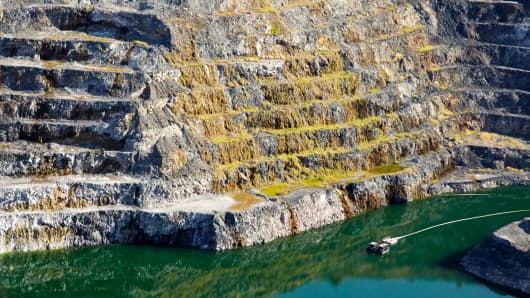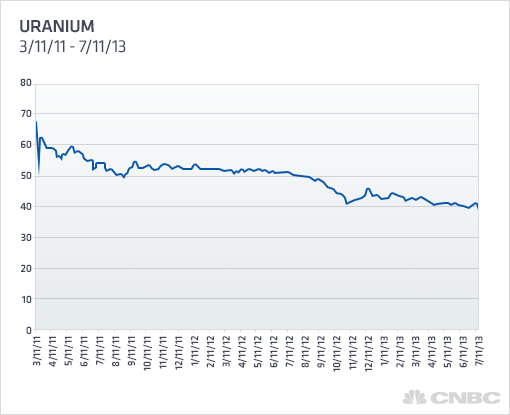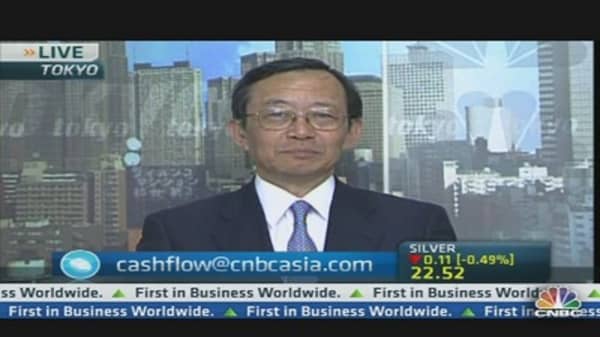Nuclear bulls
Despite those low prices—or perhaps because of them—some investors are putting bets on a uranium turnaround.
Uranium Energy Corp, an exploration and production company, said it expects demand to pick up faster than production can respond.
"With the uranium prices falling so low post-Fukushima, they are well below the economic incentive level needed to see new mine construction," said Amir Adnani, CEO of Uranium Energy Corp.
As mines struggle because of the low prices, now is the time to buy them, Adnani said.
Uranium Energy Corp has made six strategic acquisitions since Fukushima, paying on average 80 percent less for the projects than their value before the accident.
Rob Chang, research analyst in metals and mining at Cantor Fitzgerald, said that purchase of mining projects has stepped up since Fukushima. "The environment is fantastic for acquisitions," he said.
Rio Tinto outbid Cameco for Hathor, a Canadian uranium exploration company at the end of 2011, and Denison Mines bought uranium exploration projects from Fission Energy earlier this year.
(Read more: Germany rebuffs European nuclear power subsidy proposal)
All the acquisitions could gain value when demand revives, which could be triggered by the Japanese reactors' coming back—at least that's what investors hope.
David Talbot, senior mining analyst at Dundee Securities, said that he expects 8 to 10 Japanese reactors to come back online by year-end. Ten reactors have filed the necessary applications with Japan's Nuclear Regulation Authority, he said.
"Once they see Japan coming back online, I think, we will see more purchasing [of uranium]," Talbot said. "It has a lot to do with the psychological mindset of the investors."
Uranium Participation, an investment holding company that buys and stores uranium, is one way to get exposure to the commodity but not to the mines' operational risks, he said.
Shares of industry heavyweight Cameco have spiked in recent months, and uranium stocks will rise even faster when the commodity itself begins gaining, Talbot said.
Adnani pointed out that more reactors are under construction today than before Fukushima. Emerging markets are aggressively building reactors, he said, especially China, India and South Korea.
In the Middle East, Saudi Arabia has announced a plan to build 16 nuclear reactors, and the United Arab Emirates has broken ground on one of four planned reactors, Adnani said. He also expects Japan to start turning its reactors back on.






